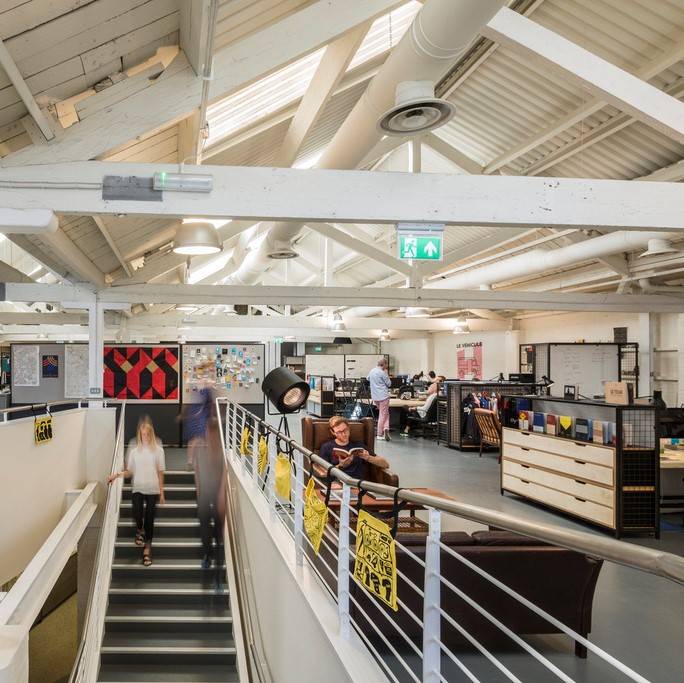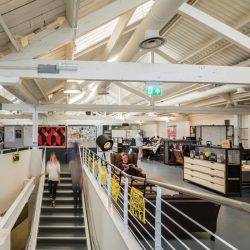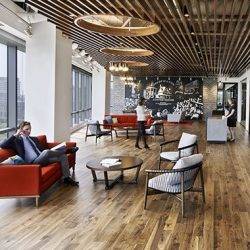February 23, 2018
Nearly a third of UK staff feel disengaged and stressed due to inefficiencies at work

Nearly a third (29 percent) of UK workers say that they have become disengaged and a third (33 percent) have gone as far as looking for a new job due to the frustrations of dealing with workplace inefficiencies. Alongside functional frustrations, 50 per cent of the most stressed UK workers said that they felt undervalued by their boss. With 67 percent of them doing more hours in the office, 46 per cent working more on weekends and 56 per cent taking fewer breaks, nearly half (47 per cent) of the most stressed respondents believed, given the opportunity, they could do a better job than their managers. These are some of findings of the Digital Work Survey 2018 which was commissioned by Wrike that highlight frustrations over inefficiencies at work and the worrying impact this is having on how engaged, productive and happy employees are in their roles. Of those who were feeling most stressed, 66 per cent said that over the last two years they’ve seen increased expectations around the speed at which they must deliver work.









 In a workplace dominated by insecurity, gig work and intelligent machines we need to improve our understanding of their potential impact on health, safety and wellbeing claims a new report.
In a workplace dominated by insecurity, gig work and intelligent machines we need to improve our understanding of their potential impact on health, safety and wellbeing claims a new report. 




 Financial services organisations are reducing the amount of commercial office space they require as they adopt more flexible work styles. This is according to a new report from HOK’s US team,
Financial services organisations are reducing the amount of commercial office space they require as they adopt more flexible work styles. This is according to a new report from HOK’s US team, 





 The UK has been ranked as the eighth best country in the world for the ability to attract, retain, train and educate skilled workers, but while its ability to leverage diversity for talent competitiveness is boosted by its global knowledge skills – the UK is undermined by its weaker performance on tolerance and gender equality. According to the Global Talent Competitiveness Index GTCI) produced by the Adecco Group, with international business school INSEAD and Tata Communications, the UK has a particularly strong pool of global knowledge skills, a variable for which it is ranked third in the index boosted further by its strong regulatory, market and business landscape. But this is undermined by its internal openness, where it still lags behind, especially when it comes to gender equality. The report also suggests that although Article 50 was triggered in 2017, the ongoing negotiations and continuing lack of clarity over the UK’s position once it leaves the European Union in 2019, means the impact of Brexit is not yet clear.
The UK has been ranked as the eighth best country in the world for the ability to attract, retain, train and educate skilled workers, but while its ability to leverage diversity for talent competitiveness is boosted by its global knowledge skills – the UK is undermined by its weaker performance on tolerance and gender equality. According to the Global Talent Competitiveness Index GTCI) produced by the Adecco Group, with international business school INSEAD and Tata Communications, the UK has a particularly strong pool of global knowledge skills, a variable for which it is ranked third in the index boosted further by its strong regulatory, market and business landscape. But this is undermined by its internal openness, where it still lags behind, especially when it comes to gender equality. The report also suggests that although Article 50 was triggered in 2017, the ongoing negotiations and continuing lack of clarity over the UK’s position once it leaves the European Union in 2019, means the impact of Brexit is not yet clear.












February 12, 2018
Luther, Marx, Engels and a nailed-on manifesto for workplace change
by Mark Eltringham • Comment, Facilities management, Workplace design
(more…)